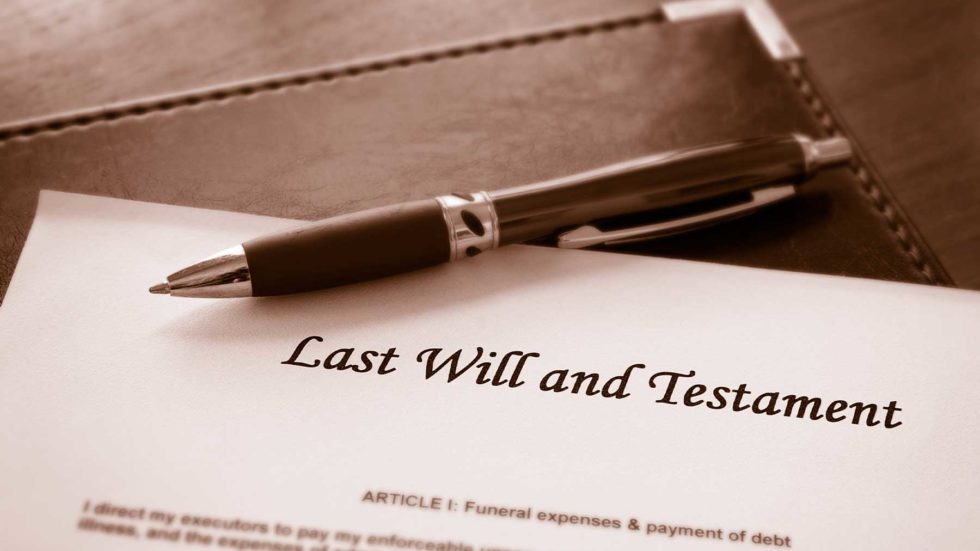Lasting Powers of Attorney and Wills

Lasting Powers of Attorney (LPAs) are legal documents that help to protect your money if you’re unable to manage your own finances for any reason. Wills contain instructions on how your money should be distributed when you die.
Both documents require some thought and planning, but they offer reassurance that your affairs are in order for the future. You can make a Will and a Lasting Power of Attorney relatively easily these days using online forms and information, but some people prefer to obtain legal help.
What is a Lasting Power of Attorney and why do you need one?
A Lasting Power of Attorney is a document that appoints one or more individuals (attorneys) to make decisions and act on your behalf (the donor) in relation to your property, finances, health and welfare. You can set detailed conditions and parameters within which they can act, and also appoint ‘stand-by’ attorneys if you choose.
Should you suffer a stroke, lose mental capacity or experience a debilitating ailment, a Lasting Power of Attorney ensures important aspects of your life are taken care of by one or more individuals you trust.
Setting up a Lasting Power of Attorney
There are two types of Lasting Power of Attorney, but both must be registered with the Office of the Public Guardian (OPG) before they can become effective. This currently costs £82 per document unless you’re exempt or eligible for a reduced fee.
- Property and financial affairs Lasting Power of Attorney – this type of Lasting Power of Attorney covers management of your bank and building society accounts, paying bills on your behalf, and selling your property.
- Health and welfare Lasting Power of Attorney – this enables your attorney(s) to make decisions regarding your medical care, aspects related to washing and dressing, moving into full-time care and whether you should be given life-sustaining medical intervention if you’re critically ill.
You can ask a solicitor to draw up these documents for you or set them up yourself. Clearly the costs will be higher if you use a solicitor, but you also benefit from tailored legal advice and guidance.
If you decide to set up an LPA yourself, you must be over eighteen and have the mental capacity to do so. You can download and print the forms from the gov.uk website by clicking here or complete them online.
What is a Will?
A Will, sometimes called a last Will and testament, documents your wishes regarding what happens to your money, property and possessions when you die. This may be a straightforward instruction to pass your entire estate to your spouse, for example, but some situations are more complex. In these cases, clear instructions held within a professionally written will can help your trustees to administer your estate more effectively.
Why do you need a Will?
- A Will allows you to decide in advance who will inherit your money and possessions – if you don’t leave a Will the money will be distributed according to the rules of intestacy, which may not be what you want.
- Your loved ones can deal with your affairs more easily by following the instructions left in your Will – it makes the process less complex and stressful at a difficult time.
- Making a Will helps you avoid inheritance tax, or reduce it – inheritance tax currently stands at 40% and applies to some deceased estates over £325,000.¹
- A Will is particularly important if you have family members who are financially dependent on you or you wish to leave money to someone other than a family member.
Essentially, a Will provides written instructions concerning your wishes after your death and helps your family to deal with a difficult and upsetting situation.
How do you make a Will?
As with a Lasting Power of Attorney you can ask a solicitor or a professional Will writer to make your Will or you can do it yourself. Some charities also offer free or reduced-cost Will-writing services in return for a donation, so this may be worth considering.
It’s sensible to seek professional assistance in drawing up your Will if your circumstances aren’t straightforward. It can save you money in the end – deceased estates can be complex to administer and you may not have considered all the necessary aspects of bequests and inheritance.
If you do decide to write your own Will, you can buy ‘blank’ templates that provide simple guidance and example wording at stationery stores and online. You’ll need to consider who to appoint as your Trustee(s), as well as who will inherit your money and possessions.
Drawing up a Lasting Power of Attorney and a Will protects your money if you fall ill or lose mental capacity, and in the event of your death. Writing these documents is an important consideration at any age, but it becomes more so as you get older – a time when your health may be more likely to fail.






